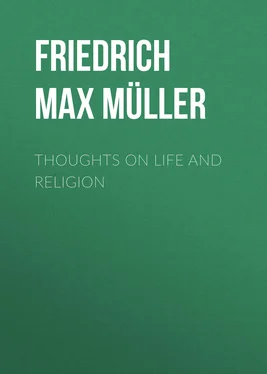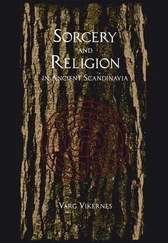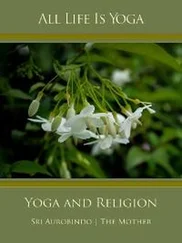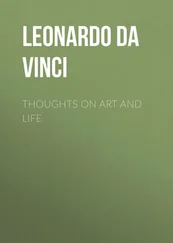Friedrich Max Müller - Thoughts on Life and Religion
Здесь есть возможность читать онлайн «Friedrich Max Müller - Thoughts on Life and Religion» — ознакомительный отрывок электронной книги совершенно бесплатно, а после прочтения отрывка купить полную версию. В некоторых случаях можно слушать аудио, скачать через торрент в формате fb2 и присутствует краткое содержание. Жанр: foreign_prose, foreign_religion, Философия, foreign_psychology, foreign_antique, на английском языке. Описание произведения, (предисловие) а так же отзывы посетителей доступны на портале библиотеки ЛибКат.
- Название:Thoughts on Life and Religion
- Автор:
- Жанр:
- Год:неизвестен
- ISBN:нет данных
- Рейтинг книги:3 / 5. Голосов: 1
-
Избранное:Добавить в избранное
- Отзывы:
-
Ваша оценка:
- 60
- 1
- 2
- 3
- 4
- 5
Thoughts on Life and Religion: краткое содержание, описание и аннотация
Предлагаем к чтению аннотацию, описание, краткое содержание или предисловие (зависит от того, что написал сам автор книги «Thoughts on Life and Religion»). Если вы не нашли необходимую информацию о книге — напишите в комментариях, мы постараемся отыскать её.
Thoughts on Life and Religion — читать онлайн ознакомительный отрывок
Ниже представлен текст книги, разбитый по страницам. Система сохранения места последней прочитанной страницы, позволяет с удобством читать онлайн бесплатно книгу «Thoughts on Life and Religion», без необходимости каждый раз заново искать на чём Вы остановились. Поставьте закладку, и сможете в любой момент перейти на страницу, на которой закончили чтение.
Интервал:
Закладка:
The yearning for union or unity with God, which we see as the highest goal in other religions, finds its fullest recognition in Christianity, if but properly understood, that is, if but treated historically, and it is inseparable from our belief in man's full brotherhood with Christ. However imperfect the forms may be in which that human yearning for God has found expression in different religions, it has always been the deepest spring of all religions, and the highest summit reached by Natural Religion. The different bridges that have been thrown across the gulf that seems to separate earth from heaven and man from God, may be more or less crude and faulty, yet we may trust that many a faithful soul has been carried across by them to a better home. It is quite true that to speak of a bridge between man and God, even if that bridge is called the Self, is but a metaphor. But how can we speak of these things except in metaphors? To return to God is a metaphor, to stand before the throne of God is a metaphor, to be in Paradise with Christ is a metaphor.
Gifford Lectures, IV.The Christian religion should challenge rather than deprecate comparison. If we find certain doctrines which we thought the exclusive property of Christianity in other religions also, does Christianity lose thereby, or is the truth of these doctrines impaired by being recognised by other teachers also?
Gifford Lectures, IV.Love—superseding faith—seems to be the keynote of all Christianity. But the world is still far from true Christianity, and whoever is honest towards himself knows how far away he himself is from the ideal he wishes to reach. One can hardly imagine what this world would be if we were really what we profess to be, followers of Christ. The first thing we have to learn is that we are not what we profess to be. When we have learnt that, we shall at all events be more forbearing, forgiving, and loving towards others. We shall believe in them, give them credit for good intentions, with which, I hope, not hell, but heaven, is paved.
Life.Our religion is certainly better and purer than others, but in the essential points all religions have something in common. They all start with the belief that there is something beyond, and they are all attempts to reach out to it.
Life.How little was taught by Christ, and yet that is enough, and every addition is of evil. Love God, love men—that is the whole law and the prophets—not the Creeds and the Catechism and the Articles and the endless theological discussions. We want no more, and those who try to fulfil that simple law, know best how difficult it is, and how our whole life and our whole power are hardly sufficient to fulfil that short law.
MS.Christ's teaching is plainly that as He is the Son of God so we are His brothers. His conception of man is a new one, and as that is new, so must His conception of God be new. He lifts up humanity, and brings deity near to humanity, and He expresses their inseparable nature and their separate existences by the best simile which the world supplies, that of Father and Son. He claims no more for Himself than He claims for us. His only excellence is that which is due to Himself—His having been the first to find the Father, and become again His Son, and His having remained in life and death more one with the Father than any one of those who professed to believe in Him, and to follow His example.
MS.If Jesus was not God, was He, they ask, a mere man? A mere man? Is there anything among the works of God, anything next to God, more wonderful, more awful, more holy than man? Much rather should we ask, Was then Jesus a mere God? Look at the miserable conceptions which man made to himself as long as he spoke of gods beside God? It could not be otherwise. God is one, and he who admits other gods beside or without Him degrades, nay, denies and destroys the One God. A God is less than man. True Christianity does not degrade the Godhead, it exalts manhood, by bringing it back near to God, as near as it is possible for the human thought to approach the ineffable and inconceivable Majesty of the true God.
MS.If I ventured to speak of God's purpose at all, I should say, that it is not God's purpose to win only the spiritually gifted, the humble, the tender hearted, the souls that are discontented with their own shortcomings, the souls that find happiness in self-sacrifice—those are His already—but to win the intellectually gifted, the wise, the cultivated, the clever, or better still, to win them both. It would be an evil day for Christianity if it could no longer win the intellectually gifted, the wise, the cultivated, the clever, and it seems to me the duty of all who really believe in Christ to show that Christianity, if truly understood, can win the highest as well as the humblest intellects.
Gifford Lectures, III.DEATH
Trust in God! What He does is well done. What we are, we are through Him; what we suffer, we suffer through His will. We cannot conceive His wisdom, we cannot fathom His love; but we can trust with a trust stronger than all other trusts that He will not forsake us, when we cling to Him, and call on Him, as His Son Jesus Christ has taught us to call on Him, 'Our Father.' Though this earthly form of ours must perish, all that was good, and pure, and unselfish in us will live. Death has no power over what is of God within us. Death changes and purifies and perfects us, Death brings us nearer to God, where we shall meet again those that are God's, and love them with that godly love which can never perish.
Life.Would that loving Father begin such a work in us as is now going on, and then destroy it, leave it unfinished? No, what is will be; what really is in us will always be; we shall be because we are. Many things which are now will change, but what we really are we shall always be; and if love forms really part of our very life, that love, changed it may be, purified, sanctified, will be with us, and remain with us through that greatest change which we call death. The pangs of death will be the same for all that, just as the pangs of childbirth seem ordained by God in order to moderate the exceeding joy that a child is born into the world. And as the pain is forgotten when the child is born, so it will be after death—the joy will be commensurate to the sorrow. The sorrow is but the effort necessary to raise ourselves to that new and higher state of being, and without that supreme effort or agony, the new life that waits for us is beyond our horizon, beyond our conception. It is childish to try to anticipate, we cannot know anything about it; we are meant to be ignorant; even the Divina Commedia of a great poet and thinker is but child's play, and nothing else.... No illusions, no anticipations; only that certainty, that quiet rest in God, that submissive expectation of the soul, which knows that all is good, all comes from God, all tends to God.
MS.As one gets older death seems hardly to make so wide a gap—a few years more or less, that is all—meantime we know in whose hands we all are, that life is very beautiful, but death has its beauty too.
Life.We accustom ourselves so easily to life as a second nature, and in spite of the graves around us, death remains something unnatural, hard and terrifying. That should not be. An early death is terrifying, but as we grow older our thoughts should accustom themselves to passing away at the end of a long life's journey. All is so beautiful, so good, so wisely ordered, that even death can be nothing hard, nothing disturbing; it all belongs to a great plan, which we do not understand, but of which we know that it is wiser than all wisdom, better than all good, that it cannot be otherwise, cannot be better. In faith we can live and we can die—can even see those go before us who came before us, and whom we must follow. All is not according to our will, to our wisdom, but according to a heavenly will, and those who have once found each other through God's hand will, clinging to His hand, find each other again.
Читать дальшеИнтервал:
Закладка:
Похожие книги на «Thoughts on Life and Religion»
Представляем Вашему вниманию похожие книги на «Thoughts on Life and Religion» списком для выбора. Мы отобрали схожую по названию и смыслу литературу в надежде предоставить читателям больше вариантов отыскать новые, интересные, ещё непрочитанные произведения.
Обсуждение, отзывы о книге «Thoughts on Life and Religion» и просто собственные мнения читателей. Оставьте ваши комментарии, напишите, что Вы думаете о произведении, его смысле или главных героях. Укажите что конкретно понравилось, а что нет, и почему Вы так считаете.












